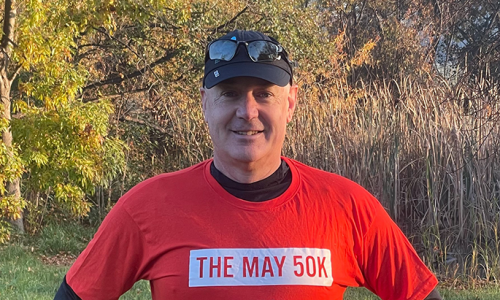- NMOSD are forms of autoimmune demyelinating diseases that specifically attack and inflame optic nerves, spinal cord and some other specific locations in the brain.
- The PBAC will meet in November to discuss new treatments to include on the PBS, including ravulizumab (Ultomiris®) for adults with NMOSD.
- Inclusion on the PBS would make this treatment affordable for adults with NMOSD
- The PBAC is calling for public submissions in support of this application.
What is neuromyelitis optica spectrum disorder (NMOSD)?
NMOSD (neuromyelitis optica spectrum disorder) are forms of autoimmune demyelinating diseases that specifically attack and inflame optic nerves, the spinal cord and some other specific locations in the brain. “Spectrum” is reflective of the varying and different ways these diseases can present. When the myelin is damaged by inflammation, demyelination occurs and a complex cascade of reactions takes place, which ultimately leads to the nerve damage and symptoms seen in NMOSD.
People with NMOSD have antibodies in their blood that attack a protein called aquaporin-4 (AQP4) in astrocytes (a type of brain cell), damaging optic nerve cells. The complement system, a part of the body’s immune system, facilitates these attacks. When the complement system is activated, it destroys cells by inserting a channel (membrane attack complex) into their surface.
Early in the disease course, NMOSD can easily be mistaken for MS, but it is a different immune-mediated disease with different treatment and management.
What are the current treatments for NMOSD?
Current treatments for NMOSD involves treatment of acute attacks and relapse prevention. Corticosteroids and therapeutic plasma exchange, which removes the harmful AQP4 antibodies, are used for acute attacks. To prevent relapses, general immunosuppressants such as corticosteroids, azathioprine, mycophenolate, methotrexate, cyclophosphamide and rituximab, are used, although they may not completely prevent relapses.
What will the Pharmaceutical Benefits Advisory Committee (PBAC) be doing?
In November 2024, the Pharmaceutical Benefits Advisory Committee (PBAC) will meet to consider a proposal to recommend adding ravulizumab (Ultomiris®) to the Pharmaceutical Benefits Scheme (PBS) for adults with NMOSD. The PBAC considers clinical trial data, submissions from the community, as well as pricing data. Then it provides recommendations to the government on whether they think a medication should be included on the PBS. It is then up to the Federal Government to give the final approval. Being included on the PBS means that the cost of these medications can be subsidised by the Government, making the medication affordable for adults with NMOSD.
This is not the first time a treatment for NMOSD has been considered by the PBAC. Eculizumab (Soliris®), the first medication to be approved by the Therapeutic Goods Administration (TGA) for the treatment of NMOSD, was considered at two PBAC meetings. However, the PBAC concluded that while eculizumab showed some effectiveness in reducing relapses, the impact on disability progression and quality of life was highly uncertain.
Ravulizumab (Ultomiris®)
Ravulizumab is a drug that blocks the complement system stopping the formation of the membrane attack complex and prevents astrocytes from being destroyed.
A recent phase 3 clinical trial showed that ravulizumab greatly reduces the number of relapses in people with NMOSD who are AQP4 antibody-positive compared to people taking a placebo (mock treatment). None of the participants taking ravulizumab experienced a relapse during the study, while nearly half of participants in the placebo arm did. Also, people receiving ravulizumab had less disability associated with mobility. Most side effects were mild to moderate, the most common being headache, back pain, joint pain and urinary tract infections. Many trial participants contracted COVID-19 as this trial was carried out during the height of the COVID-19 pandemic. You can read more about the clinical trial’s findings here.
Ravulizumab is administered intravenously every eight weeks in adults, following a loading dose.
How does the PBAC decide what will be included on the PBS?
The PBAC considers several factors when making recommendations, including the effectiveness and cost of a treatment relative to the other available medicines. The decision of the PBAC is the first step in a process where final approval is given by the Federal Government.
What can we and the NMOSD community do to support the inclusion of this NMOSD treatment on the PBS?
MS Australia supports affordable access to all proven treatment options allowing people of all ages with NMOSD and their doctors to find effective therapies suited to their individual needs. MS Australia will be making a submission to support the inclusion of ravulizumab on the PBS, as we welcome affordable access to all treatment options that have been shown in clinical trials to provide safe and effective treatment for NMOSD.
The NMOSD community are also invited to provide comments in support of these applications. Consumer comments to the PBAC are due 25 September 2024 and can be submitted here.
More information about PBAC consumer comments are available here and here. For helpful tips for submitting consumer comments to the PBAC, please see here.





